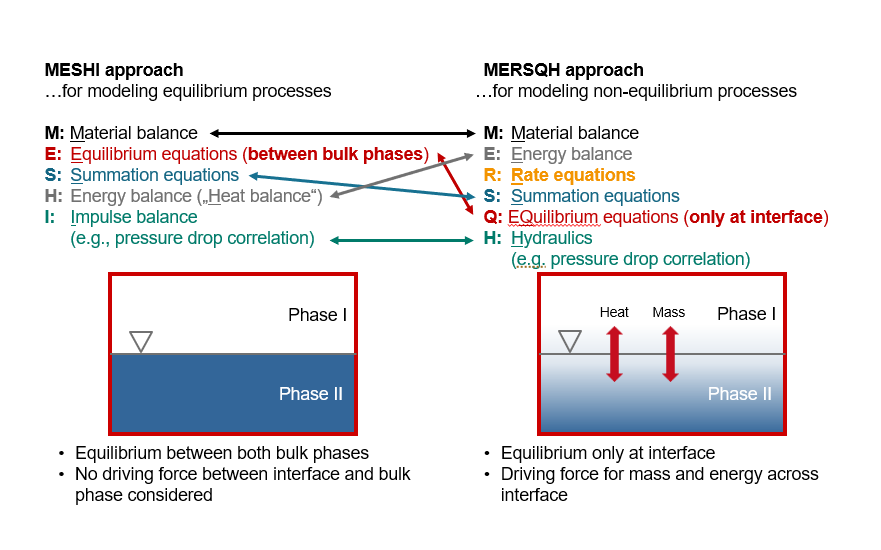 © d|b|t|a
© d|b|t|a
In Process Modeling II, students are familiarized with the complex mechanisms of processes outside their equilibrium state. The following points outline the focuses of this course:
Understanding of fundamental mechanisms outside the equilibrium state: Students will develop a deep understanding of the fundamental mechanisms of processes outside their equilibrium state. This includes a wide range of processes ranging from chemical reactions to physical phenomena.
Assessment of non-equilibrium models: Students will be able to assess which processes are best described by non-equilibrium models and when the application of such models is necessary. This requires a deep understanding of the underlying principles and a critical analysis of the processes involved.
Problem-solving skills for dynamic tasks: A focus of the course is on developing problem-solving skills for dynamic tasks. Students will learn to analyze complex problems, develop models, and find suitable solution approaches to effectively model and understand processes outside their equilibrium state.
Competencies in applied programming for modeling non-equilibrium models: Additionally, students will acquire competencies in applied programming to develop and analyze models of processes outside the equilibrium state. This includes the use of programming languages and tools for modeling and simulation to understand and analyze complex nonlinear systems.
Through this course, students will become familiar with advanced concepts and techniques of process modeling outside the equilibrium state and gain the necessary skills to understand, model, and analyze complex nonlinear systems.
